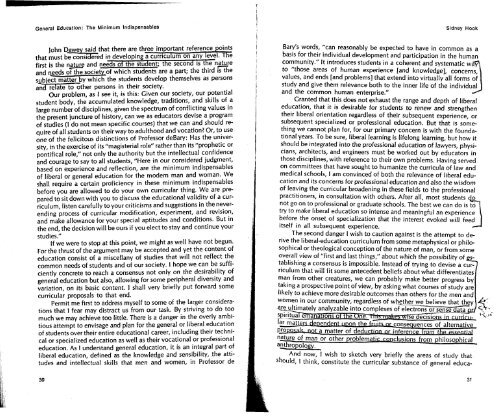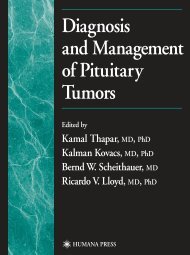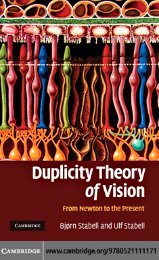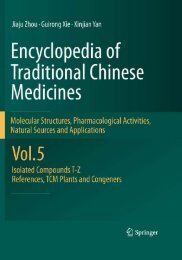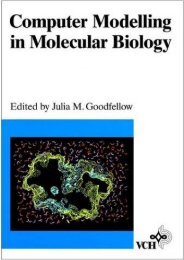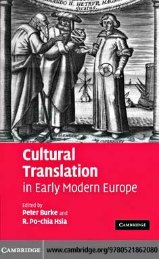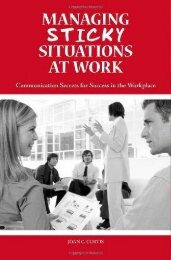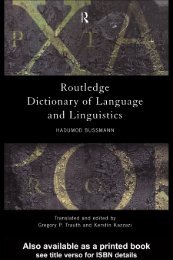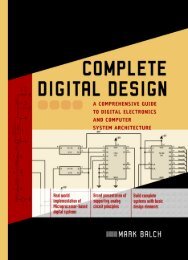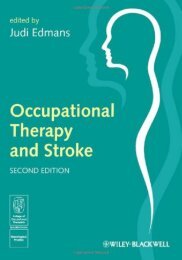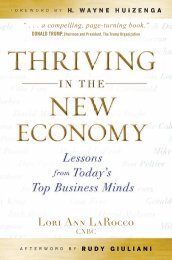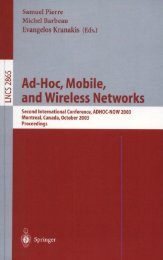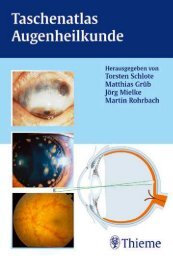<strong>General</strong> Education: <strong>The</strong> Minimum IndispensablesSidney Hookjohn Dewe said that <strong>the</strong>re are three important reference pointsthat must be -Y;f const ered in developing a curriculum on any level. <strong>The</strong>first is <strong>the</strong> nme and needs <strong>of</strong> <strong>the</strong> student; <strong>the</strong> second is <strong>the</strong> nareand needs <strong>of</strong> <strong>the</strong> societv <strong>of</strong> which students are a part; <strong>the</strong> third is <strong>the</strong>ct~hiect ---,--- - matter bv which <strong>the</strong> students develop <strong>the</strong>mselves as personsand -. .-relate to o<strong>the</strong>r persons in <strong>the</strong>ir society.Our problem, a; I see it, is this: Given our society, our potentialstudent body, <strong>the</strong> accumulated knowledge, traditions, and skills <strong>of</strong> alarge number <strong>of</strong> disciplines, given <strong>the</strong> spectrum <strong>of</strong> conflicting values in<strong>the</strong> present juncture <strong>of</strong> history, can we as educators devise a program<strong>of</strong> studies (I do not mean specific courses) that we can and should require<strong>of</strong> all students on <strong>the</strong>ir way to adulthood and vocation? Or, to useone <strong>of</strong> <strong>the</strong> felicitous distinctions <strong>of</strong> Pr<strong>of</strong>essor deBary: Has <strong>the</strong> university,in <strong>the</strong> exercise <strong>of</strong> its "magisterial role" ra<strong>the</strong>r than its "prophetic orpontifical role," not only <strong>the</strong> authority but <strong>the</strong> intellectual confidenceand courage to say to all students, "Here in our considered judgment,based on experience and reflection, are <strong>the</strong> minimum indispensables<strong>of</strong> liberal or general education <strong>for</strong> <strong>the</strong> modern man and woman. Weshall require a certain pr<strong>of</strong>iciency in <strong>the</strong>se minimum indispensablesbe<strong>for</strong>e you are allowed to do your own curricular thing. We are preparedto sit down with you to discuss <strong>the</strong> educational validity <strong>of</strong> a curriculum,listen carefully to your criticisms and suggestions in <strong>the</strong> neverendingprocess <strong>of</strong> curricular modification, experiment, and revision,and make allowance <strong>for</strong> your special aptitudes and conditions. But in<strong>the</strong> end, <strong>the</strong> decision will be ours if you elect to stay and continue yourstudies."If we were to stop at this point, we might as well have not begun.For <strong>the</strong> thrust <strong>of</strong> <strong>the</strong> a&ument hay be accepted and yet <strong>the</strong> content <strong>of</strong>education consist <strong>of</strong> a miscellany <strong>of</strong> studies that will not reflect <strong>the</strong>common needs <strong>of</strong> students and <strong>of</strong> our society. I hope we can be sufficientlyconcrete to reach a consensus not only on <strong>the</strong> desirability <strong>of</strong>general education but also, allowing <strong>for</strong> some peripheral diversity andvariation, on its basic content. I shall very briefly put <strong>for</strong>ward somecurricular proposals to that end.Permit me first to address myself to some <strong>of</strong> <strong>the</strong> larger considerationsthat I fear may distract us from our task. By striving to do toomuch we may achieve too little. <strong>The</strong>re is a danger in <strong>the</strong> overly ambitiousattempt to envisage and plan <strong>for</strong> <strong>the</strong> general or liberal education<strong>of</strong> students over <strong>the</strong>ir entire educational career, including <strong>the</strong>ir technicalor specialized education as well as <strong>the</strong>ir vocational or pr<strong>of</strong>essionaleducation. As I understand general education, it is an integral part <strong>of</strong>liberal education, defined as <strong>the</strong> knowledge and sensibility, <strong>the</strong> attitudesand intellectual skills that men and women, in Pr<strong>of</strong>essor deBary's words, "can reasonably be expected to have in common as abasis <strong>for</strong> <strong>the</strong>ir individual development and participation in <strong>the</strong> humancommunity." It introduces students in a coherent and systematic wto "those areas <strong>of</strong> human experience [and knowledge],values, and ends [and problems] that extend into virtually all <strong>for</strong>ms <strong>of</strong>study and give <strong>the</strong>m relevance both to <strong>the</strong> inner life <strong>of</strong> <strong>the</strong>and <strong>the</strong> common human enterprise."Granted that this does not exhaust <strong>the</strong> range and depth <strong>of</strong> liberaleducation, that it is desirable <strong>for</strong> students to renew and streng<strong>the</strong>n<strong>the</strong>ir liberal orientation regardless <strong>of</strong> <strong>the</strong>ir subsequent experience, orsubsequent specialized or pr<strong>of</strong>essional education. But that is somethingwe cannot plan <strong>for</strong>, <strong>for</strong> our primary concern is with <strong>the</strong> foundationalyears. To be sure, liberal learning is lifelong learning, but how itshould be integrated into <strong>the</strong> pr<strong>of</strong>essional education <strong>of</strong> lawyers, physicians,architects, and engineers must be worked out by educators inthose disciplines, with reference to <strong>the</strong>ir own problems. Having sewedon committees that have sought to humanize <strong>the</strong> curricula <strong>of</strong> law andmedical schools, I am convinced <strong>of</strong> both <strong>the</strong> relevance <strong>of</strong> liberal educationand its concerns <strong>for</strong> pr<strong>of</strong>essional education and also <strong>the</strong> wisdom<strong>of</strong> leaving <strong>the</strong> curricular broadening in <strong>the</strong>se fields to <strong>the</strong> pr<strong>of</strong>essionalpractitioners, in consultation with o<strong>the</strong>rs. After all, most students donot go on to pr<strong>of</strong>essional or graduate schools. <strong>The</strong> best we can do istry to make liberal education so intense and meaningful an experiencebe<strong>for</strong>e <strong>the</strong> onset <strong>of</strong> specialization that <strong>the</strong> interest evoked will feeditself in all subsequent experience.<strong>The</strong> second danger I wish to caution against is <strong>the</strong> attempt to derive<strong>the</strong> liberal-education curriculum from some metaphysical or philosophicalor <strong>the</strong>ological conception <strong>of</strong> <strong>the</strong> nature <strong>of</strong> man, or from someoverall view <strong>of</strong> "first and last things," about which <strong>the</strong> possibility <strong>of</strong>tablishing a consensus is impossible. Instead <strong>of</strong> trying to devise a criculum that will fit some antecedent beliefs about what differentiaAnd now, I wish to sketch very briefly <strong>the</strong> areas <strong>of</strong> study thatshould, I think, constitute <strong>the</strong> curricular substance <strong>of</strong> general educa-Ii
<strong>General</strong> Education: <strong>The</strong> Minimum IndispensablesSidney Hooktion, and dwell on some <strong>of</strong> <strong>the</strong> open problems. I classify <strong>the</strong>m under sixrubrics.1. Every student has an objective need to be able to communicateclearly and effectively with his fellows, to grasp with comprehensionand accuracy <strong>the</strong> meaning <strong>of</strong> different types <strong>of</strong> discourse, and to expresshimself in a literate way. (Judging by <strong>the</strong> student levels <strong>of</strong> readingand writing accepted at some colleges, we may expect in <strong>the</strong> futurethat students will sue <strong>the</strong>ir educational aha maters, not <strong>for</strong> failure toteach <strong>the</strong>m wisdom, but <strong>for</strong> failure to make <strong>the</strong>m literate or teach <strong>the</strong>m<strong>the</strong> good language habits <strong>of</strong> <strong>the</strong>ir own tongue.)2. Every student needs to have at least some rudimentary knowledgeabout his own body and mind, about <strong>the</strong> world <strong>of</strong> nature and itsdetermining <strong>for</strong>ces, about evolution and genetics, and allied mattersthat are central to a rational belief about <strong>the</strong> place <strong>of</strong> man in <strong>the</strong> universe.If he is to have any understanding <strong>of</strong> <strong>the</strong>se things, he must possessmore than <strong>the</strong> capacity to remember and parrot isolated facts. Hemust have some grasp <strong>of</strong> <strong>the</strong> principles that explain what he observes,some conception <strong>of</strong> <strong>the</strong> nature <strong>of</strong> scientific method. After all, <strong>the</strong>modern world is what it is in virtue <strong>of</strong> <strong>the</strong> impact <strong>of</strong> science and technologyon nature and society. He cannot feel at home in <strong>the</strong> modernworld ignorant <strong>of</strong> science.3. Every student has a need to become intelligently aware <strong>of</strong> howhis society functions, <strong>of</strong> <strong>the</strong> great historical, economic, and social<strong>for</strong>ces shaping its future, <strong>of</strong> <strong>the</strong> alternatives <strong>of</strong> development still opento us, <strong>of</strong> <strong>the</strong> problems, predicaments, and programs he and his fellowcitizens must face. Whe<strong>the</strong>r he wants to revolutionize <strong>the</strong> world orsave it from revolution, he must acquire an historical perspective,without which old evils may reappear under new faces and labels.who act as if <strong>the</strong>y were born yesterday are <strong>the</strong> great simplifiers,who mistake <strong>the</strong>ir own audacity <strong>for</strong> objective readiness and <strong>of</strong>ten<strong>the</strong> lives <strong>of</strong> o<strong>the</strong>rs in <strong>the</strong> wreckage <strong>of</strong> <strong>the</strong>ir hopes.- 4. Every student needs to be in<strong>for</strong>med, not only <strong>of</strong> significant facts!and <strong>the</strong>ories about nature, society, and <strong>the</strong> human psyche, but also <strong>of</strong><strong>the</strong>conflict <strong>of</strong> values and ideals in our time, <strong>of</strong> <strong>the</strong> great maps <strong>of</strong> life,<strong>the</strong> paths to saivat~o-n,unier which human beings are*enrolled. Hemus_t learn how to uncover <strong>the</strong> inescapable presence <strong>of</strong>values in empolicy, how to relate <strong>the</strong>m to <strong>the</strong>ir camenmkms~^-quences and costs i6 o<strong>the</strong>r values, and <strong>the</strong> difference between arbiandreasonable value judgments.5. Every student needs to acquire some methodological sophisticationthat should sharpen his sense <strong>for</strong> evidence, relevance, andcanons <strong>of</strong> validity. He should, at least in popular discourse and debate,be able to distinguish between disguised definitions and genuine em-pirical statements, between resolutions and generalizations, to nail <strong>the</strong>obvious statistical lie, and acquire an immunity to rhetorical claptrap.T i is & ,.A in thQ c~u' r-riculum. Is it expecting too much <strong>of</strong> effective general education that it=within students a permanent defense against gullibility? It isastonishing to discover how superstitious students are, how vulnerableto demogogic appeal, to empty show and eloquence. <strong>The</strong>re are, <strong>for</strong> example,morestudents enrolled in courses in astrology than astrophysics.I ask this question under <strong>the</strong> influence <strong>of</strong> <strong>the</strong> report <strong>of</strong> a biazrreexperiment published in <strong>the</strong> July 1973 issue <strong>of</strong> <strong>The</strong> lournal <strong>of</strong> MedicalEducation, which has a bearing on <strong>the</strong> weight now being given to studentevaluations in <strong>the</strong> assessment <strong>of</strong> teachers. A medical team hired apr<strong>of</strong>essional actor to teach "charismatically and nonsubstantively on atopic about which he knew nothing." Under <strong>the</strong> pseudonymous name<strong>of</strong> Dr. Fox, in an inspired and seductive fashion, his lectures spicedwith humor, he delivered himself <strong>of</strong> an hour-long lecture that consisted<strong>of</strong> pure gobbledegook, "nothing more than a goulash <strong>of</strong> double talk,neologisms, non sequiturs, and contradictory statements." <strong>The</strong> audiencewas composed <strong>of</strong> fifty-five educators, psychiatrists, psychologists,social workers, and administrators <strong>of</strong> courses in educational philosophy.All respondents were very favorably impressed. One even believedhe had read Dr. Fox's papers. <strong>The</strong>re seemed to be only one criticism:"<strong>The</strong> presentation was too intellectual." <strong>The</strong> topic <strong>of</strong> <strong>the</strong> lecturewas "Ma<strong>the</strong>matical Game <strong>The</strong>ory Applied to <strong>the</strong> Education <strong>of</strong> Physicians"and was ostensibly designed to be understood by laymen. Ifgeneral education cannot immunize pr<strong>of</strong>essionals against such farragoes<strong>of</strong> absurdity, it seems to me a failure no matter what else it does.6. Finally, every student has a need to be inducted into <strong>the</strong> culturallegacies <strong>of</strong> his civilization, its art, literature, and music. His sensibilitiesshould be developed and disciplined because <strong>the</strong>y provide notonly an unfailing occasion <strong>of</strong> delight and enjoyment in <strong>the</strong> present butalso a source <strong>of</strong> enrichment <strong>of</strong> experience in <strong>the</strong> future.<strong>The</strong>se needs, I submit, define required areas <strong>of</strong> study. <strong>The</strong> creativetask we face is to devise specific courses from campus to campus thatwill give <strong>the</strong>se studies body and depth, that will truly challenge andinterest students be<strong>for</strong>e <strong>the</strong> point <strong>of</strong> specialization, and continue to doso beyond it. I hope that o<strong>the</strong>rs in <strong>the</strong> humanities, natural sciences,and social sciences will come <strong>for</strong>ward with vital and practicable proposals<strong>for</strong> curriculum construction, and will grapple with well-knowndifficulties. What history, <strong>for</strong> example, should be taught, and how? Isit feasible to include <strong>the</strong> systematic study <strong>of</strong> Oriental literature andculture without cutting too much away from <strong>the</strong> study <strong>of</strong> Western literatureand culture? Hov; should <strong>the</strong> sciences be taught? Should ma<strong>the</strong>-
- Page 1 and 2: THEOther books published in coopera
- Page 3 and 4: ContentsIntroductionSidney HookxiGE
- Page 5 and 6: IntroductionSidney HookNew York Uni
- Page 7 and 8: GENERAL EDUCATION -CHALLENGEAND JUS
- Page 9 and 10: General Education and the Universit
- Page 11 and 12: General Education and the Universit
- Page 13 and 14: General Education and the Universit
- Page 15 and 16: General Education and the Universit
- Page 17 and 18: General Education and the Universit
- Page 19 and 20: General Education and the Universit
- Page 21: General Education: The Minimum Indi
- Page 25 and 26: General Education: The Minimum Indi
- Page 27 and 28: On Reviving Liberal Education-inthe
- Page 29 and 30: On Reviving Liberal Education-in th
- Page 31 and 32: On Reviving Liberal Education-inthe
- Page 33 and 34: Humanism and the HumanitiesFrederic
- Page 35 and 36: Humanism and the HumanitiesFrederic
- Page 37 and 38: Humanism and the HumanitiesFrederic
- Page 39 and 40: Humanism and the HumanitiesFrederic
- Page 41 and 42: Humanism and the HumanitiesFrederic
- Page 43 and 44: Humanism and the HumanitiesFrederic
- Page 45 and 46: Justifying the HumanitiesRonald Ber
- Page 47 and 48: Observations on Humanism and Histor
- Page 49 and 50: Observations on Humanism and Histor
- Page 51 and 52: The Language and Methods of Humanis
- Page 53 and 54: The Language and Methods of Humanis
- Page 55 and 56: The Language and Methods of Humanis
- Page 57 and 58: Science, Science Teaching, and Rati
- Page 59 and 60: Science, Science Teaching, and Rati
- Page 61 and 62: Science, Science Teaching, and Rati
- Page 63 and 64: Science, Science Teaching, and Rati
- Page 65 and 66: Science, Science Teaching, and Rati
- Page 67 and 68: In Defense of Scientific Knowledgei
- Page 69 and 70: In Defense of Scientific KnowledgeE
- Page 71 and 72: The Uses and Limitations of Science
- Page 73 and 74:
The Uses and Limitations of Science
- Page 75 and 76:
The Uses and Limitations of Science
- Page 77 and 78:
Multilevel Teaching of the Natural
- Page 79 and 80:
The Social Sciences in Liberal Educ
- Page 81 and 82:
The Social Sciences in Liberal Educ
- Page 83 and 84:
The Social Sciences in Liberal Educ
- Page 85 and 86:
The Social Sciences in Liberal Educ
- Page 87 and 88:
The Economist Among the Social Scie
- Page 89 and 90:
The Economist Among the Social Scie
- Page 91 and 92:
Social Science and General Educatio
- Page 93 and 94:
A Role for Social Science?Robert L.
- Page 95 and 96:
Experiential Educationand Revitaliz
- Page 97 and 98:
Experiential Education and Revitali
- Page 99 and 100:
Experiential Education and Revitali
- Page 101 and 102:
Experiential Education and Revitali
- Page 103 and 104:
Experiential Education and Revitali
- Page 105 and 106:
Experiential Education and Revitali
- Page 107 and 108:
Education for the Future: The Liber
- Page 109 and 110:
Education for the Future: The Liber
- Page 111 and 112:
The Desirability of Pulling in One'
- Page 113 and 114:
On Sharpening the HornsSidney Hooki
- Page 115 and 116:
~ The Humanities as Scholarshipand
- Page 117 and 118:
The Humanities as Scholarship and a
- Page 119 and 120:
Questions of Viability in Nontradit
- Page 121 and 122:
On Interdisciplinary EducationHowar
- Page 123 and 124:
On Interdisciplinary EducationHowar
- Page 125 and 126:
The Logic of the Social Sciences: T
- Page 127 and 128:
The Logic of the Social Sciences: T
- Page 129 and 130:
The Logic of the Social Sciences: T
- Page 131 and 132:
A Pro~osal for a New Division of th
- Page 133 and 134:
A Proposal for a New Division of th
- Page 135 and 136:
New Beginnings in General Education
- Page 137 and 138:
Thoughts on a Social-Science Curric
- Page 139 and 140:
Thoughts on a Social-Science Curric
- Page 141 and 142:
Thoughts on a Social-Science Curric
- Page 143 and 144:
Thoughts on a Social-Science Curric
- Page 145 and 146:
The Specter at the Feastevaluated.
- Page 147:
ContributorsContributorsLearned Soc


